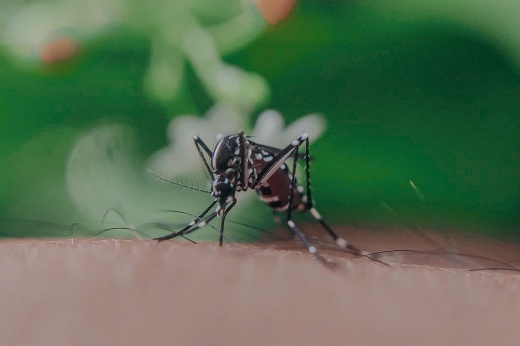In total, 17 traps have tested positive for the virus, and one death related to West Nile has been reported in Dallas County this year, the website states.
The city of Dallas also used trucks to spray mosquito repellant at multiple locations across the city in late September after finding areas affected by West Nile virus, according to a Sept. 27 release. Dallas city and county officials monitor and test for West Nile positives throughout the summer and fall.
“We collect the traps, and we monitor [them], so they're spread out everywhere,” said Christian Grisales, public information officer for Dallas County Health and Human Services.
Officials urge residents to protect themselves by using mosquito repellent, covering up legs and arms, and reducing outdoor activity in the evenings and at nighttime, according to the press release. Residents should also eliminate standing water, which is a breeding ground for mosquitoes. This includes swimming pools, pet watering dishes, birdbaths, potted plants, vehicle tires, ponds, empty containers, toys and clogged gutters.
“We advise everyone in the community to drain their water, if there's anything in [your] area, to prevent mosquitoes from breeding,” Grisales said.
According to the Texas Department of State Health Services, residents should follow the “Four Ds," which include staying indoors during dusk and dawn; dressing in long sleeves and pants when outside for extra protection; using mosquito repellent with the ingredient called DEET; and draining standing water near homes.
“Mosquitoes could be deadly,” Grisales said. “This season we have reported only one death, fortunately, but in the past we have reported more.
Grisales added that people exercising or performing outdoor activities near a lake or body of water should wear repellent to ward off mosquitos.
According to the Centers for Disease Control and Prevention, usually no symptoms are present in cases of West Nile. When symptoms are present, they include fever, nausea, headaches, body aches, joint pain, diarrhea, vomiting and/or a rash. Although most people recover quickly, one out of 10 people can develop serious cases, the CDC states. For more information, visit Dallas County's mosquito prevention website.





